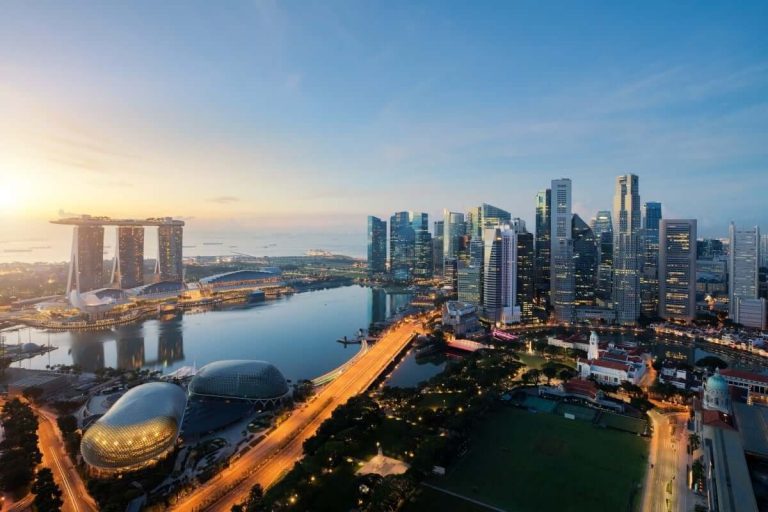quick look
- Singapore's core inflation rate accelerated in February to 3.6%, marking its fastest pace in seven months, driven by Lunar New Year celebrations.
- Core consumer prices rose to 3.4%, beating expectations and January numbers, highlighting ongoing cost-of-living pressures.
- Moderation expected: Despite the rise, experts expect a gradual decline in inflation rates as the year progresses.
Singapore's measure of core inflation, a crucial indicator of the country's economic health, rose sharply in February, reaching a pace not seen in the past seven months. This acceleration highlights the continuing pressures on the cost of living, driven by seasonal fluctuations attributed to the Lunar New Year, which traditionally sees a rise in the prices of services and food.
Monsoon storms are leading the charge
In February, core inflation, which intelligently excludes volatile elements such as private ground transportation and accommodation costs, jumped to 3.6% year-on-year. This increase not only exceeded economists' expectations of 3.4%, but also exceeded January's figure of 3.1%. Data from the London Stock Exchange Group indicate that the February figure is the highest since the peak of 3.8% recorded in July 2023.
Meanwhile, headline consumer prices showed strong growth, registering a 3.4% increase compared to the same month of the previous year. This growth rate, which is stronger than expectations of 3.3% and the January high of 2.9%, indicates continued upward pressure on overall consumer prices.
Singapore's economic outlook amid inflation fears
Despite the current acceleration, the Monetary Authority of Singapore (MAS) and many analysts expect a gradual moderation in core inflation over the remainder of the year. Factors contributing to this expected easing include lower import cost pressures and easing tightness in the local labor market.
Official forecasts remain unchanged, with headline and core inflation expected to range between 2.5% to 3.5% for all of 2024. Goldman strategists Reina Gio and Jonathan Sequeira note that inflation may remain high in March but expect it to slow to 2%. annually. -end.
Singapore's economic backdrop offers mixed signals. Inflation has fallen from its peak. However, they continue to show resilience amid slowing economic growth and increasing taxes on goods and services. Last year, the economy expanded by 1.1%. This was a slowdown from 2022's growth rate of 3.8%. Despite this, Singapore aims to achieve a growth trajectory of 1% to 3% this year. However, this goal was set against the backdrop of looming geopolitical uncertainties.
Looking ahead, Singapore is preparing for its next monetary policy review in April. In response to dynamic economic conditions, the Monetary Authority of Singapore has increased the frequency of its reviews. This decision is considered a strategic step. It demonstrates the Authority's commitment to maintaining financial stability. Amid this volatility, companies like Boustead Singapore are making strategic decisions. They continue to invest capital, hoping for higher returns. This optimism is evident in the stock's astonishing 52% rise over the past five years.

